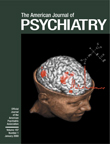Efficacy and Cost-Effectiveness of Psychotherapy,
It is the unusual book that makes you keep saying to yourself, “I wish there were more.” But this is one such book. There simply is not enough information in this slim book to satisfy my thirst for information on the cost-effectiveness and efficacy of psychotherapy, and I suspect that policy makers, benefit managers, and managed care executives will feel the same.
Mind you, this is hardly the fault of the editor and the authors. Most of the literature on cost-effectiveness and efficacy focuses on psychopharmacological interventions. Recently the literature has focused especially on the newer drugs such as atypical antipsychotics and selective serotonin reuptake inhibitors, for a variety of obvious reasons. An exception has been the pioneering cost-effectiveness and cost-offset work in the 1980s of experts like Kornfeld and Schlesinger. It is pretty rare to find studies on either efficacy or cost-effectiveness of long-term psychotherapeutic interventions and even rarer to find such studies dealing with psychoanalysis.
This book, which deals largely with shorter-term psychotherapies, including cognitive behavior interventions, fills a critical niche. We have known for some time that 1) depression responds better to combined psychopharmacological and psychotherapeutic modalities than either alone, 2) schizophrenia responds slightly better to such a combination but not in an additive manner, as depression does, and 3) most chronic conditions respond better when more elements of treatment, care, and rehabilitation are employed. However, there is much more to be shown if current healthcare reform demands for evidence-based medicine are to be met.
In Efficacy and Cost-Effectiveness of Psychotherapy, Dr. Spiegel has chosen to “chunk” the field into diagnostic areas and ask experts to do analyses of the cost-effectiveness and efficacy of psychotherapy in each area. Unfortunately, the first four chapters are less data-driven than the others. However, the authors conclude that cognitive behavior methods have a slight edge in the treatment of posttraumatic stress disorder compared with other treatments. Chapter 5, on the other hand, which focuses on borderline personality disorder, provides the first really solid evidence of cost-saving; the authors quote H.L. Heard, who concluded that dialectical behavior therapy provides “an overall savings of $10,000 per patient per year” in the treatment of borderline personality disorder. Then the authors of chapter 6 conclude that “direct and indirect costs of poorly treated depression far outweigh the costs of effective treatment,” although they caution that no data exist on the economic impact on improved functioning at work or at home or in health care expenditures. Finally, chapters 7 and 8 present summaries on the effectiveness of psychotherapy with patients suffering from medical/surgical conditions.
All in all, this is a good first effort at attacking part of the most critical question we face today, to wit, what treatment(s) work for which patients best, where, and at what cost.



